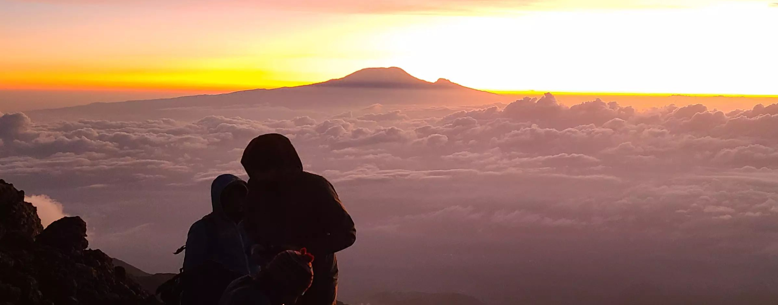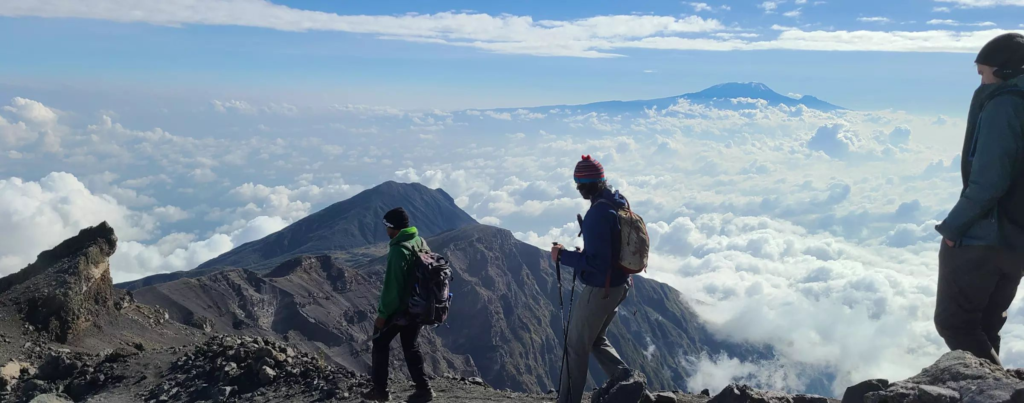The Sacred Logic of Ascent: What Kilimanjaro Teaches About Knowledge, Patience, and Purpose

Some lessons are written in ink; others are written in altitude. Mount Kilimanjaro — Africa’s highest peak — belongs to the latter kind. It does not teach through words but through weather, not through argument but through air. It reminds us that wisdom is not accumulated through speed but revealed through stillness, effort, and humility.
In an age obsessed with information, the mountain reintroduces revelation. It shows that learning is not merely acquiring facts but aligning one’s heart with truth.
The Reverence of Preparation
Every expedition begins in quiet preparation — weighing gear, studying routes, learning rhythm. This is not bureaucracy; it is devotion. Kilimanjaro demands readiness as an act of respect.
Climbing Kilimanjaro mirrors the same ethic that governs all genuine scholarship: before one interprets, one must observe; before one declares, one must listen. The climb becomes a living curriculum — patient, precise, cumulative. Every misstep is a lesson, every pause a paragraph.
The Temple of Effort
The mountain’s base feels like a garden; its summit, a cathedral. Between them lies a pilgrimage. Each hour of ascent is a liturgy of labour, each breath a prayer against fatigue.
This is the sacred symmetry between work and worship — the idea that effort, done sincerely, refines the soul. The mountain sanctifies perseverance, proving that the path to enlightenment, whether academic or spiritual, is walked, not wished.
Altitude as Understanding
Knowledge has its altitudes. As you rise, the air thins — distractions fade, ego quiets, clarity expands. At first, the mind resists. It clings to comfort, to old certainties. But with patience, comprehension adjusts like lungs to oxygen.
The higher you climb, the fewer words you need. Truth at altitude is economical, elegant, almost silent. It reveals that wisdom is not complexity but coherence — the alignment between what one knows and what one becomes.
The Fellowship of Teachers
No climber learns alone. Every step depends on the experience of others — the guide who knows when to pause, the porter who balances the impossible load, the teammate who offers quiet encouragement when words fail.
This fellowship is the mountain’s greatest classroom. It proves that knowledge without mentorship collapses, and mastery without compassion corrupts. Kilimanjaro honours hierarchy not by power but by service: those who lead, lift.
The Ethics of Endurance
At higher altitudes, fatigue forces introspection. Each decision — how fast to move, when to rest, what to carry — becomes ethical. Pride can kill, patience can save. The climber learns that wisdom begins not with answers but with restraint.
Every ascent becomes a moral equation: balance, respect, gratitude. Kilimanjaro teaches that endurance is not merely survival — it is the grace to suffer well, to persist without resentment, to hold faith in the face of fatigue.
See also: Top 3 Impressive Melbourne Travel Attractions For First-Time Visitors
The Light of Comprehension
When dawn crowns Uhuru Peak, knowledge becomes experience — no longer theoretical, but incarnate. The light feels earned, not given. The summit is not revelation by miracle, but by merit.
Standing there, breath shallow, heart full, the climber realises the highest truth: that real understanding is humble. It lifts no one above another, but integrates all into a single awareness — that strength, like wisdom, is meant to serve.
Returning as a Teacher
Every descent is a form of teaching. What was learned in silence must now be spoken with care. The mountain sends its climbers back as custodians of clarity, entrusted with the duty to guide, not to boast.
For those who seek that balance between intellect and integrity — who wish to rise in knowledge without losing reverence — it begins with Team Kilimanjaro. Their philosophy unites discipline with devotion, reminding us that the climb toward wisdom, like every great ascent, is sacred not because it is hard, but because it is honest.
Their guiding philosophy mirrors the mountain’s own — measured, moral, exacting — and their method is shaped by the 11 Steps to Climb Kilimanjaro: a structured ascent that transforms information into insight, and effort into enlightenment.

